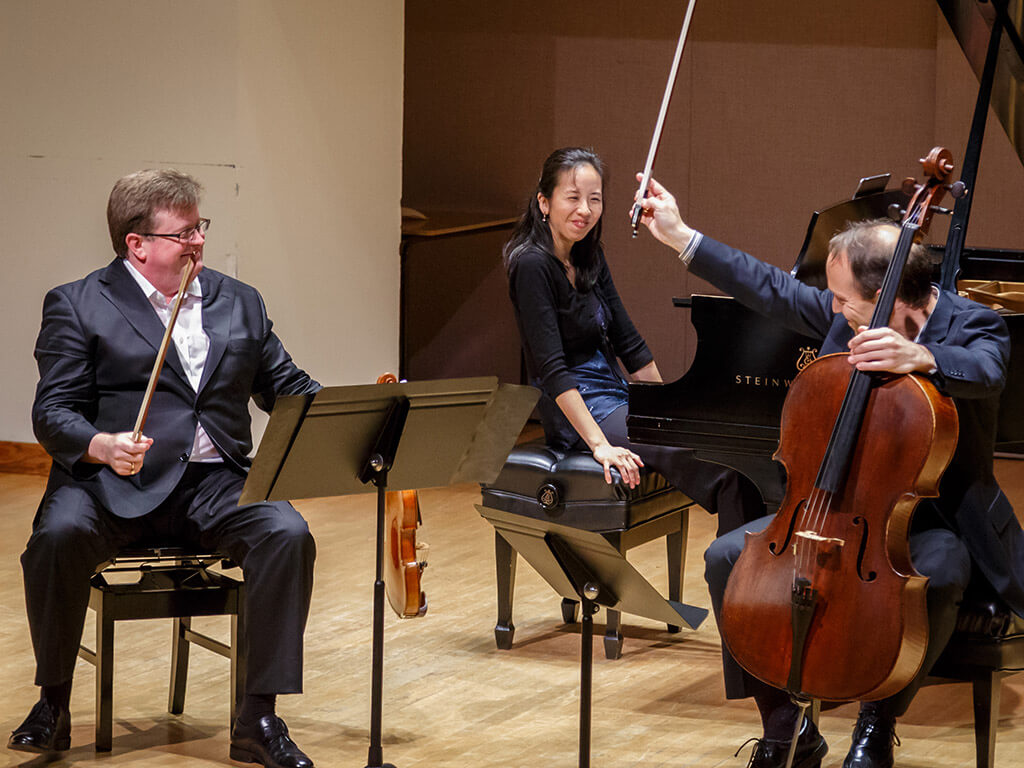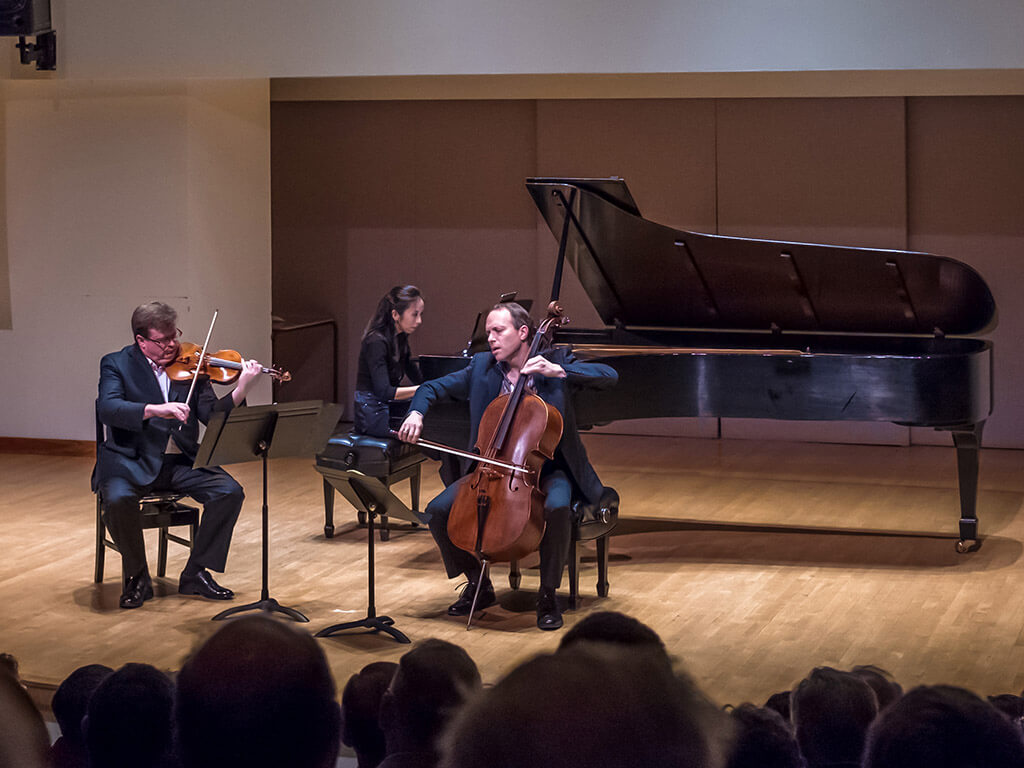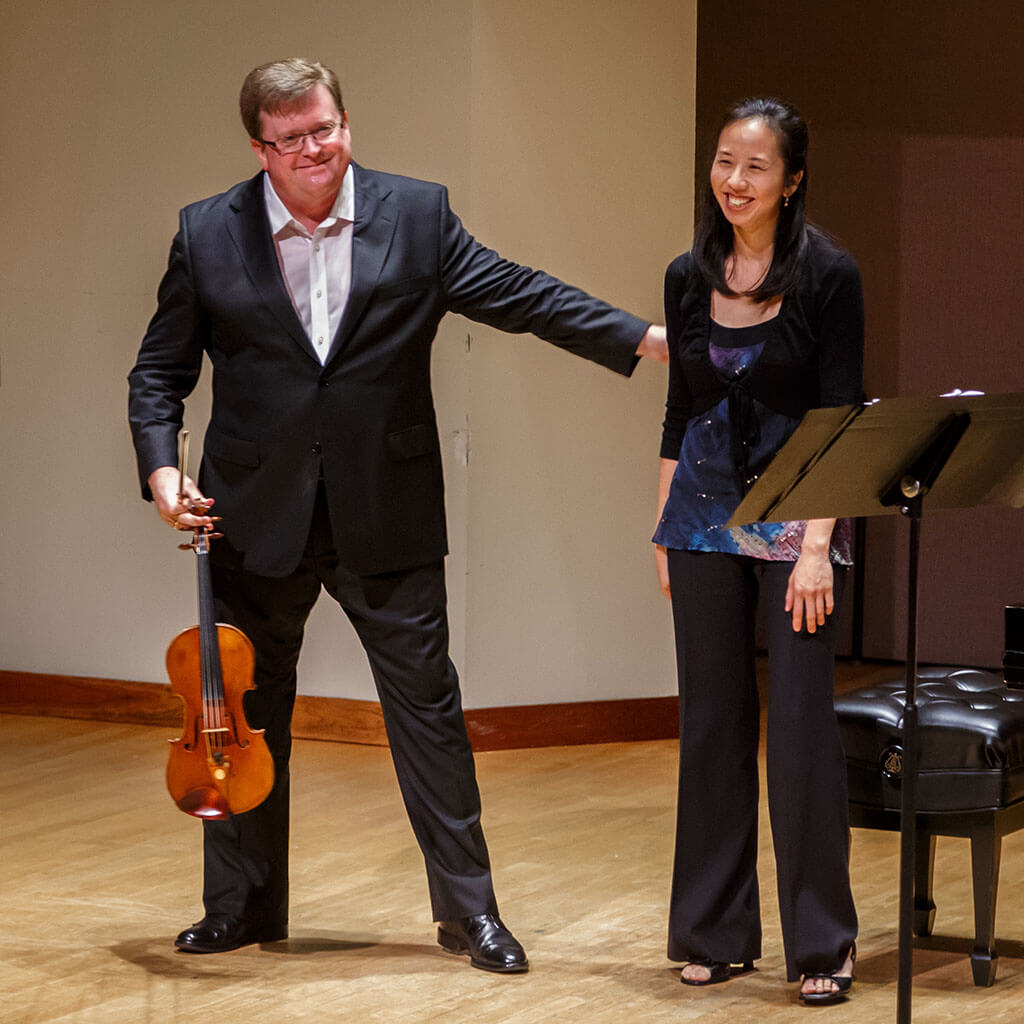
Violinist Martin Beaver, violist Owen Dalby, cellist Christopher Costanza and pianist Angela Park. Toronto Summer Music Festival. Walter Hall. July 14.
Bastille Day, a symbol of the post-monarchic French cry of liberty, equality and fraternity, deserves some fireworks, even from people without a direct French connection. The Toronto Summer Music Festival fired off four colourful bursts in Walter Hall on Friday night that also set an example of those three human ideals.
The chamber-music recital was billed as “Martin Beaver and Friends”, giving the Canadian-born violinist a free hand to pick his collaborators and choose the programme. What the enthusiastic audience at Walter Hall received was a musically rich offering that highlighted many layers of partnership, both musically and personally.
The evening of works showcased great works by Wolfgang Amadeus Mozart, Ludwig van Beethoven and Anton Arensky, as well as a beguiling Canadian composition by Quebec composer Hector Gratton from the first half of the 20th century. These were satisfying pieces, all of which treated everyone playing as musical equals. And because the equals gathered before us performed at such a high level, the recital stimulated the mind as well as the heart.

The programme began with one of two duos Mozart wrote for violin and viola, pairing Beaver with Owen Dalby. Dalby is a recent addition to the St. Lawrence String Quartet, which was invited to open this year’s festival—the first season under new artistic director Jonathan Crow—on Thursday.
Dalby (who is also an accomplished violinist), could not have been a finer ambassador for the viola’s particularly versatile character. In its upper range, the instrument can speak on a violin’s terms; in its lower range, it adds sonic heft to the palette of tonal colours. Dalby is a particularly expressive, engaged and charismatic player who, with Beaver’s strong, assured partnership, beautifully showcased Mozart’s brilliant dialogues and counterpoints in the G Major Duo (K423). Mozart threw in every trick in his considerable arsenal to give each of his two string voices equal weight, and Dalby and Beaver returned the favour.
Beaver was joined on stage by Canadian pianist Angela Park to play Beethoven’s well-loved C minor Sonata for Violin and Piano No. 7, Op. 30. This is a big, brooding work, bristling with technical challenges and stark contrasts in mood. Beaver’s playing was assured, imposing and expertly shaped and paced. Park proved to be a brilliant collaborator through the whole programme. Her playing was technically flawless, but, if I had one reservation about all three pieces that included piano, it was that the keyboard could have been more present. The old Steinway concert grand at Walter Hall needs to be really pushed hard to speak out, but Park chose to let its voice remain muted. The Beethoven sonata demands that the piano and violin be on an equal footing, so we needed to hear more of the Steinway.
The programme-closing Piano Trio No. 1 by Arensky, surely one of the most emotionally engaging pieces of chamber music from the late 19th century, demands that everyone on stage really dig in to their instruments. Park was there, but the piano too often sounded like it was being played backstage instead of right behind Beaver and St. Lawrence String Quartet cellist Christopher Costanza. Costanza and Beaver were magical together, allowing this listener to be carried off in Arensky’s beguiling composition.

The evening didn’t have an encore, but Beaver and Park offered a great encore-type piece to open the second half: The Quatrième danse canadienne by Hector Gratton. Beaver explained how he had first played it as a 10-year old, but that belied the fact that this a fully grown-up classical take on Quebec folk fiddling.
The bulk of the programming in this year’s Toronto Summer Music Festival is of this sort of mix-and-match variety, drawing from the pool of resident and visiting professionals playing from in the chamber music canon, with Canadian works new and old tossed in to honour the country’s sesquicentennial. If Friday’s recital was any indication, this is a winning formula.
For more REVIEWS, click HERE.
#LUDWIGVAN
- Classical Music 101: What Does A Conductor Do? - June 17, 2019
- Classical Music 101 | What Does Period Instrument Mean? - May 6, 2019
- CLASSICAL MUSIC 101 | What Does It Mean To Be In Tune? - April 23, 2019



